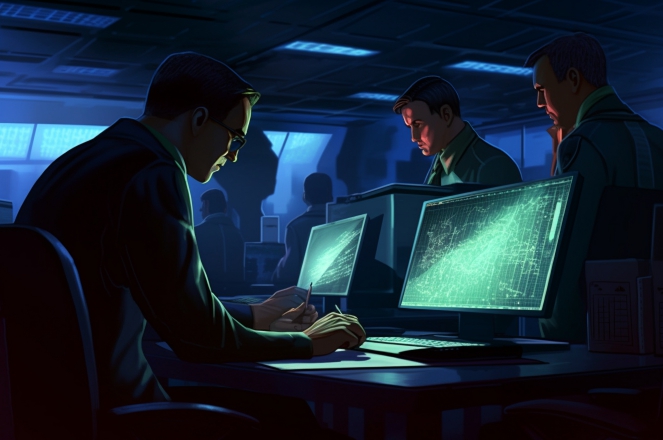NVIDIA CEO Jensen Huang: AI Will Reshape Jobs, Not Eliminate Them
As artificial intelligence continues its rapid advancement, NVIDIA CEO Jensen Huang offers a measured perspective on its employment impact. Contrary to doomsday predictions about widespread job losses, Huang suggests the workforce transformation will be more nuanced - creating as many opportunities as it displaces.

Image source note: Image generated by AI, image authorization service provider Midjourney
Huang acknowledges that certain professions face higher automation risks, particularly entry-level white-collar positions and some programming roles. Recent labor market data supports this observation, showing IT and data engineering positions declining faster than other occupations since early 2023. "The nature of work is changing," Huang notes, "but human ingenuity remains irreplaceable."
Rather than fearing displacement, Huang encourages workers - especially young professionals - to focus on emerging fields where human skills complement technological capabilities. He highlights biology, education, manufacturing and agriculture as sectors with strong growth potential. These industries combine technical innovation with hands-on human expertise that AI cannot replicate.
The tech executive's comments come amid heated debates about generative AI's workplace implications. While automation anxiety is understandable, Huang emphasizes that historical technological revolutions have consistently created more jobs than they eliminated. The current transition may follow similar patterns, though requiring workforce adaptation.
Education systems and career development programs face mounting pressure to prepare workers for this evolving landscape. Huang suggests cultivating flexibility and continuous learning as core professional competencies. "The jobs of tomorrow may not exist today," he observes. "Success will belong to those who can grow with the technology."
Market analysts note that Huang's perspective aligns with emerging employment trends. While some technical roles face contraction, demand surges for positions combining domain expertise with AI implementation skills. This bifurcation suggests workers may need to develop hybrid skill sets blending technical and industry-specific knowledge.
As organizations increasingly adopt AI solutions, Huang predicts new categories of jobs will emerge to manage these systems and interpret their outputs. Rather than replacing human judgment entirely, AI may shift workplace responsibilities toward higher-value decision-making and creative problem-solving.
The NVIDIA CEO concludes with an optimistic outlook: "Technology has always been a net job creator throughout history. The AI revolution will be no different - it will change how we work, not eliminate our need to work."
Key Points
- AI adoption is reducing demand for certain technical roles faster than other occupations
- Emerging opportunities exist in biotech, education and agricultural technology sectors
- Workforce success will depend on adaptability and continuous skill development
- Historical patterns suggest technological disruption ultimately creates more jobs than it eliminates